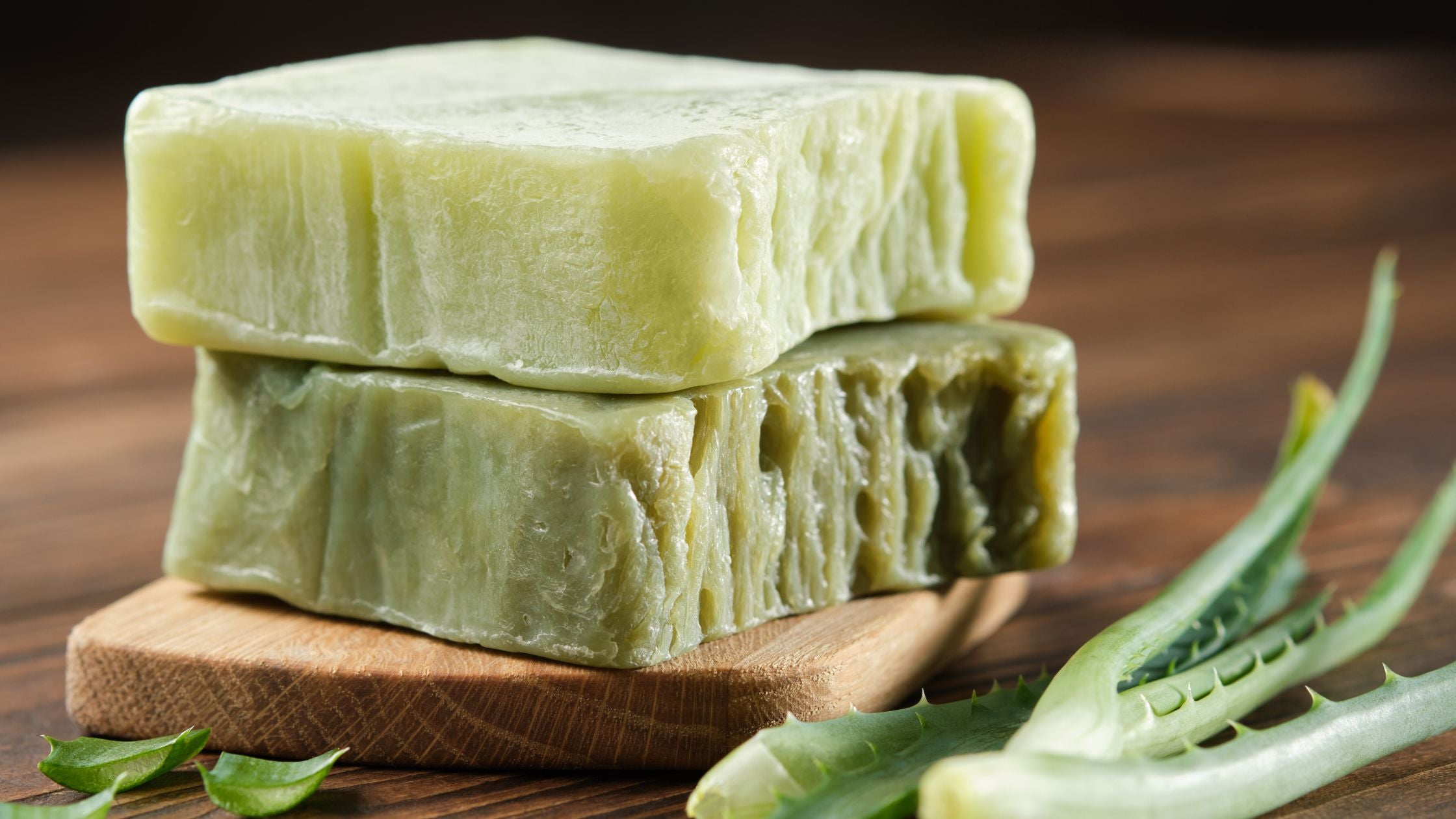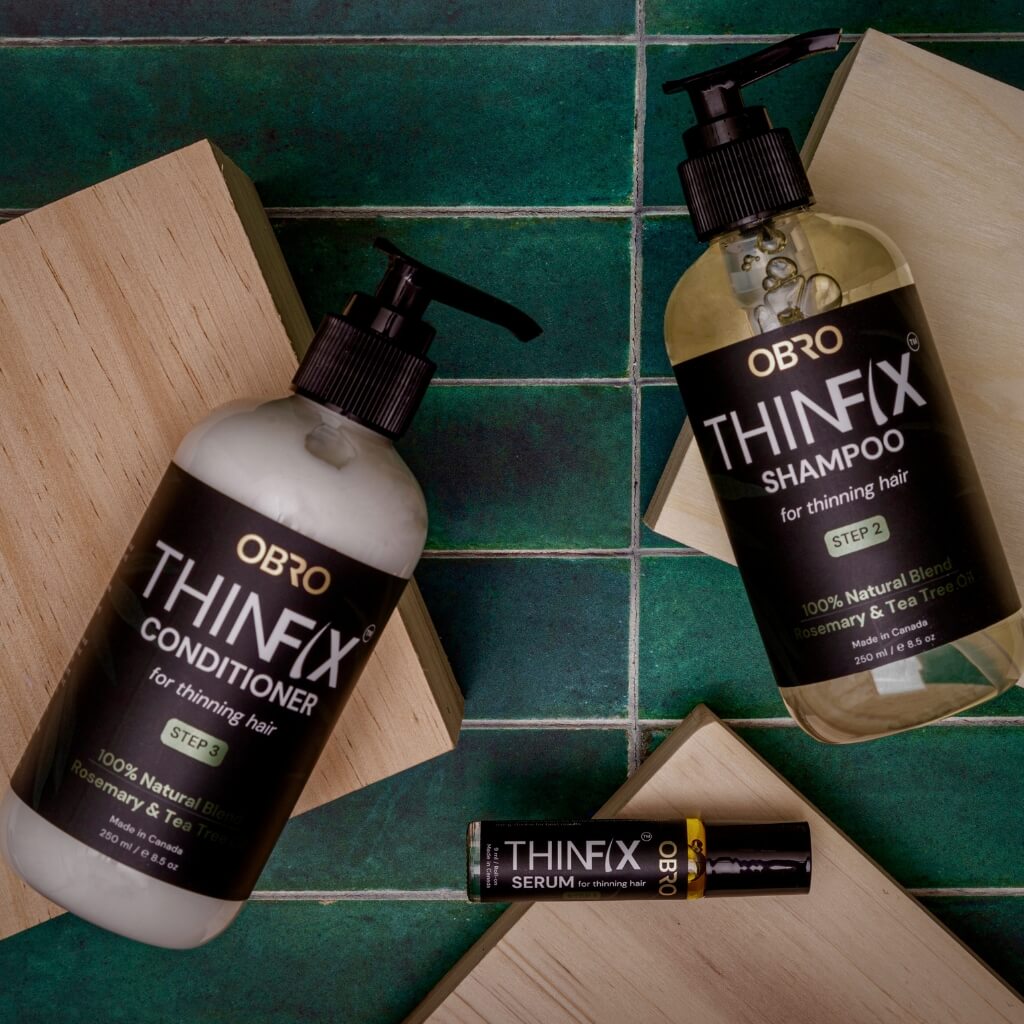Top Natural Ingredients for the Best Homemade Shampoo for Healthy Hair
Are you ready to move away from chemical-filled commercial shampoos and create your own shampoo that promotes strong, healthy hair growth? Well then, let us begin our journey into the world of DIY haircare. Here we will talk about creating a homemade shampoo using natural ingredients and essential oils tailored specifically for hair needs while reducing potential risk of excessive shedding due to damage.
We’ll look at how best to pick out the base components as well as combining nourishing natural oils with herbal elements which work together towards optimal results – goodbye hairloss & hello beautiful locks! For step-by-step instructions on crafting an effective personalized home solution for treating damaged tresses through all these suggested techniques. Join us in exploring this guide on making the ideal homemade shampoo designed specifically for boosting up those long strands!
Key Takeaways
-
Craft your own shampoo with natural ingredients for healthy hair and stimulating growth.
-
Enjoy the therapeutic benefits of essential oils to boost hair health & growth.
-
Make an eco-friendly switch to homemade shampoos tailored to specific needs!
Crafting Your Own Shampoo: The Essentials
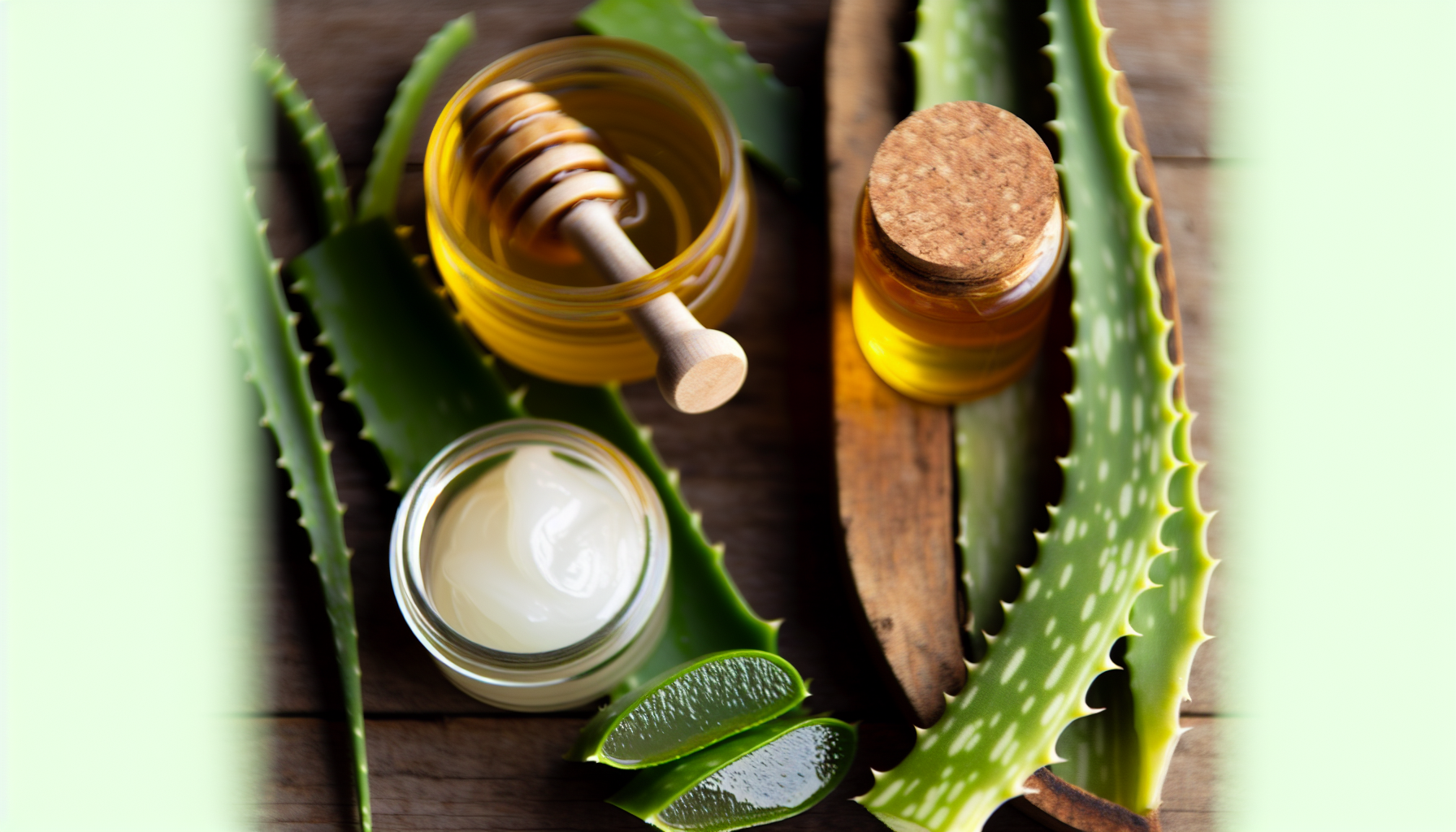
Using natural ingredients like lavender and rosemary essential oils, peppermint oil, aloe vera gel, and coconut oil allows you to craft a shampoo specifically designed for stimulating hair growth while avoiding potential negative side effects of commercial shampoos. Who wouldn’t benefit from having their own homemade product that nourishes the scalp?
A custom-made recipe tailored to your needs can be made with these simple items - from bringing out waves in curly hair or hydrating dry locks. Whether it’s battling baldness or restoring lost strength - this type of shampoo is sure to give long-term positive results.
Hair loss prevention doesn’t get easier than making your very own homemade shampoo! With proper usage focusing on specific problems such as lacklustre strands—you’ll have shiny tresses all day every day by being able customize what goes into each bottle based upon our unique needs and hair type.
Selecting Base Ingredients for Your Shampoo
Creating a DIY shampoo recipe requires choosing appropriate base ingredients to create an effective, nourishing product. The best choice for this is liquid castile soap - vegetable-based and capable of providing cleanliness without removing natural oils from the scalp. Aloe vera carries cleansing properties while also introducing essential vitamins and minerals needed by the head area to remain healthy. Honey should be included too. Its moisturizing nature helps keep hair in great condition as well as eliminating impurities found on your scalp through its cleaning powers.
Enhancing with Natural Oils
When making your own shampoo, you can boost its effects by adding a few drops of natural oils such as coconut oil for improved hydration. Known to retain the scalp’s moisture and soothe irritation, this type of oil helps hair feel softer while avoiding unwanted greasiness or allergic reactions. Another beneficial ingredient is almond oil, which contains protein that strengthens and repairs any damage done to strands. It brings an abundance of antioxidants essential for healthy locks. Lastly, jojoba will also bring unique moisturizing properties which are perfect when customizing shampoos at home. Adding 5-10 drops per ounce (30 ml) should give exceptional results if incorporated into your homemade concoction correctly! Showing some extra love towards our tresses with these plant based ingredients can make all the difference in preserving beautiful haircare regimens!
Infusing with Herbal Goodness
Making your own invigorating shampoo using herbs such as rosemary, lavender and chamomile can not only provide beneficial nutrients for hair but also a refreshing scent. To get the most out of these natural ingredients, steep 2 tablespoons in one cup of water for 30 minutes then strain them before adding to your existing shampoo. Rosemary helps promote circulation while lavender soothes the scalp, which may aid with stimulating growth. Chamomile adds softness and luster to the top, making it quite an effective mix altogether! For something extra special why not experiment by infusing other herbal benefits too like aloe vera, hibiscus leaves or green tea into this custom made concoction, all sure to help give you healthier looking tresses!
The Ultimate Homemade Shampoo Recipe for Hair Growth
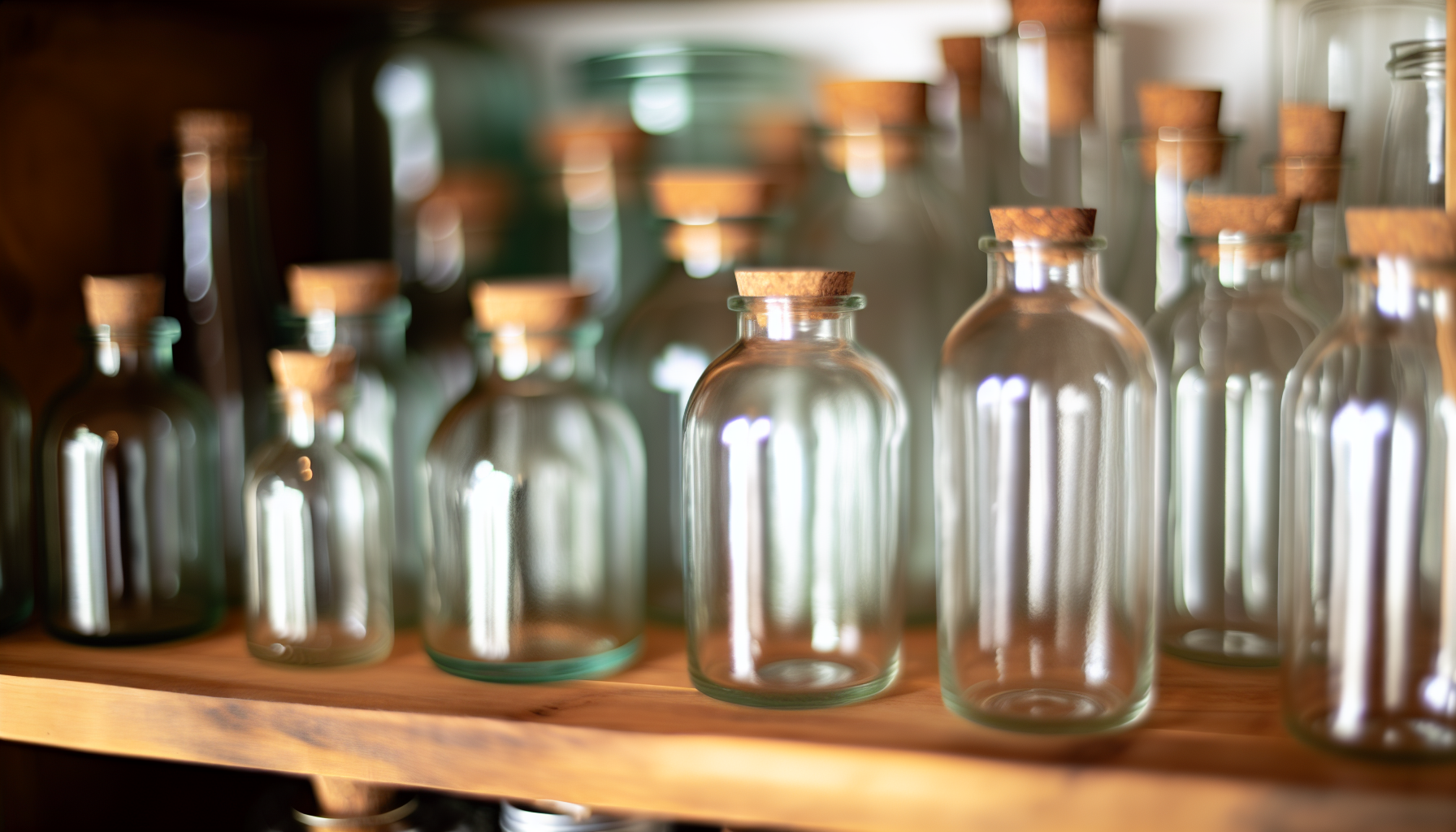
Now that you know the basics of making your own homemade shampoo to promote hair growth, it’s time to get started. Gather up all of the components necessary and mix them together properly before storing in a safe place. With just a simple recipe made out of natural ingredients, you will be on course for achieving healthier locks that are filled with vibrancy!
Gathering Your Materials
When creating your own shampoo, make sure you have all the necessary materials for combining and packaging it. An ideal tool to use is a Smart Funnel which can prevent any wastage of product when bottling homemade shampoo. Ordinary kitchen measuring cups are perfectly suitable too! To preserve natural ingredients such as essential oils while keeping freshness within the contents, glass containers are preferred. Here’s what needs to be done before storing: give each container a good wash with soap and hot water then soak them in 3% hydrogen peroxide for 10-15 minutes followed by rinsing off thoroughly after drying completely.
Blending the Ingredients
To make a stimulating concoction with essential oils and herbal infusions using castile soap, you can follow these steps. Start by brewing the herbs to create an extract by boiling or heating them until they become concentrated. Then mix this infusion into your chosen type of castile soap which blends easily with other scents such as essential oils. Experiment combining different amounts and combinations for optimal smell results before stirring it all together carefully so that the oil, decoction and lye blend completely. Finally, get ready to use your unique aromatherapy mixture made from combined ingredients. Natural liquid solution like Castille Soap plus botanical extracts enhanced by fragrant molecules in precious essential oils!
Bottling and Preservation Tips
Once you’ve developed the best homemade shampoo for hair growth, it is crucial to store it appropriately. For starters, place your natural blend in a clearly labeled and airtight jar away from direct sunlight. This ensures that the components are kept at peak freshness. Give yourself time to get used to new ingredients used for personalizing your shampoo, as these adjustments take some time before they begin exhibiting full benefits on one’s locks and scalp area.
Essential Oils: Nature's Aromatic Boosters
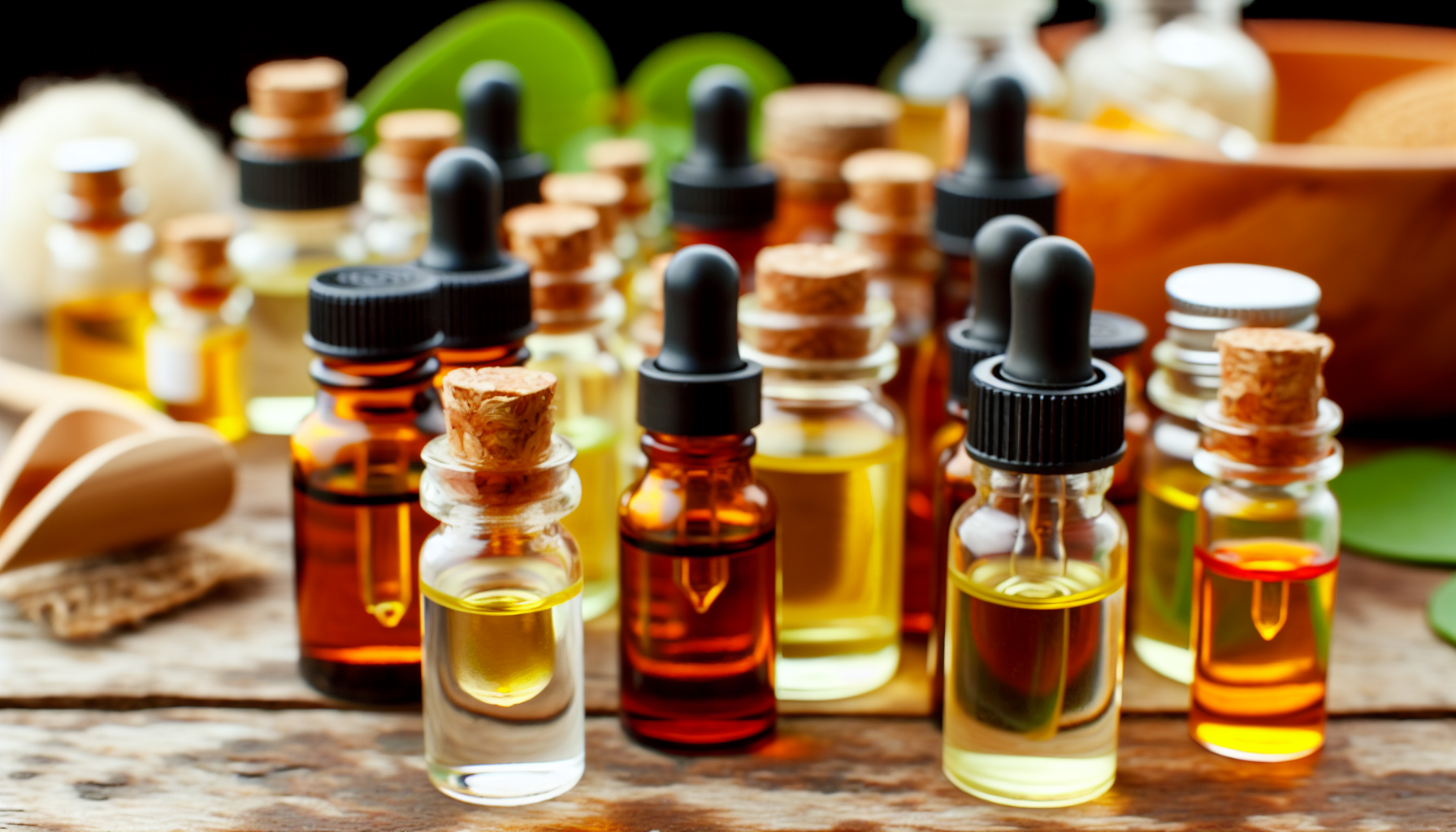
Essential oils are powerful, concentrated extracts from plants and when added to shampoo can not only add a pleasing scent but also provide hair-friendly advantages. For instance, lavender essential oil is effective in easing scalp itchiness while improving hair growth. On the other hand, tea tree oil contains anti-bacterial components that keep the scalp healthy at all times. Using such essential oils regularly will aid in enhancing both one’s hair health as well as its growth rate significantly over time.
Tailoring Scents and Benefits
It’s easy to create a tailor-made shampoo by choosing from the abundant essential oils available. Lavender oil is perfect for calming and nourishing dry hair, while tea tree oil can help improve scalp health. By picking appropriate vital oils, you’ll obtain an aromatically delightful product that also meets your specific hairstyle needs.
Quantity and Safety Considerations
When making your own homemade shampoo, you should only use a safe amount of essential oils and make sure to mix them with carrier oil or base for dilution. For the best results, it’s recommended that 1% essential oil is blended with 99% of a carrier solution - about 10-20 drops per 8 ounces in total. Some aromas may be more concentrated than others, so always adjust this ratio according to personal preference.
DIY Shampoo for Hair Growth
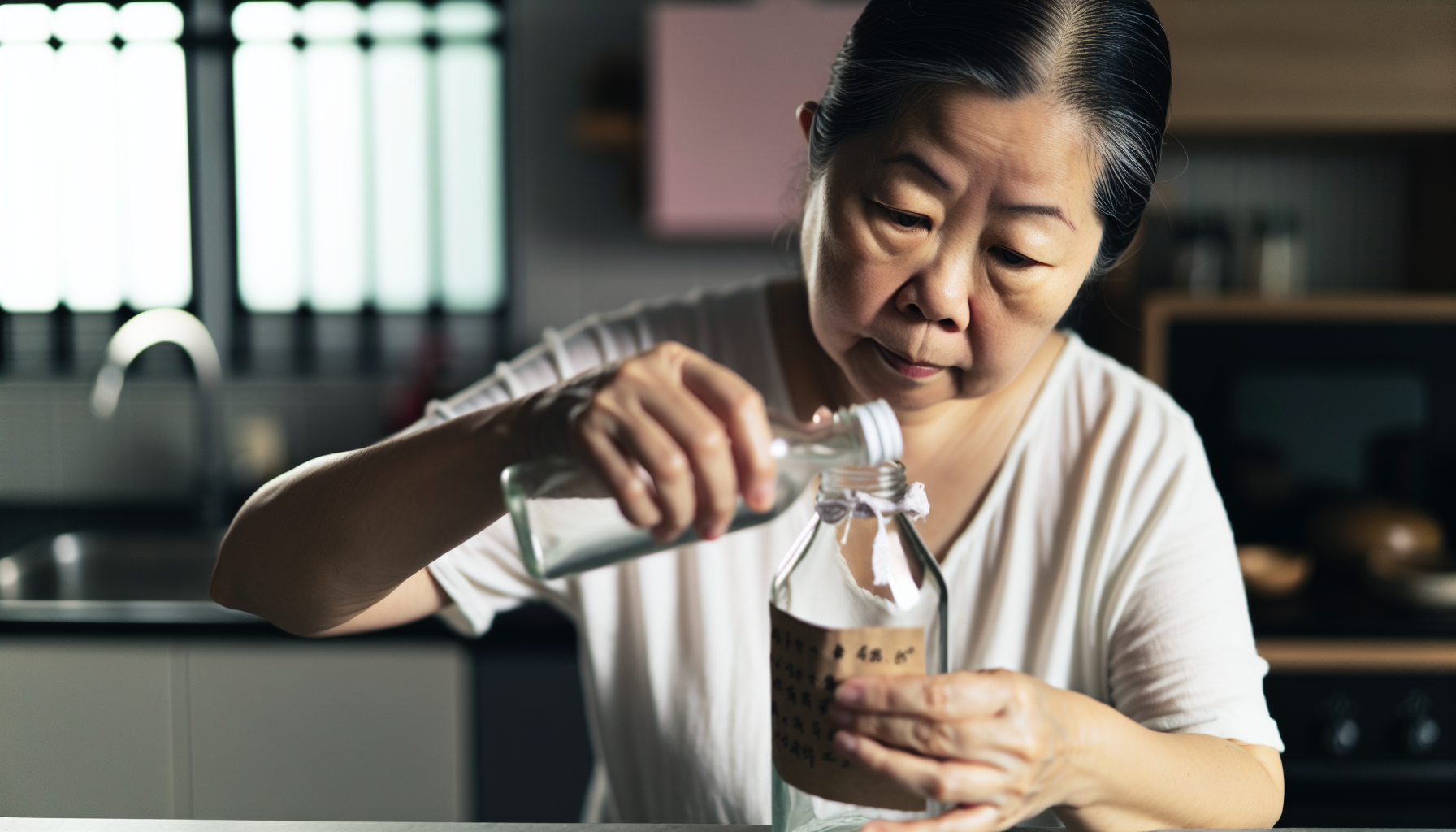
DIY shampoo for hair growth is a great choice to cultivate the health of your scalp and encourage healthy new hair development. With natural components such as green tea, honey, olive oil, aloe vera and castile soap included in it, your homemade concoction will provide nourishment that replenishes the needs of your tresses while also stimulating the follicles which can potentially lessen any kind of shedding.
No more expensive shampoos with nasty additions – you can now make use of this do-it-yourself solution to ensure complete care for enhanced locks! You just need knowledge on some basic ingredients like: Green tea, honey, olive oil, castile soap or Aloe Vera – all these natural elements combined can aid towards encouraging superior length retention regardless of if it’s an ounce prevention from commercialized brands.
Avoiding Harmful Additives in DIY Shampoos
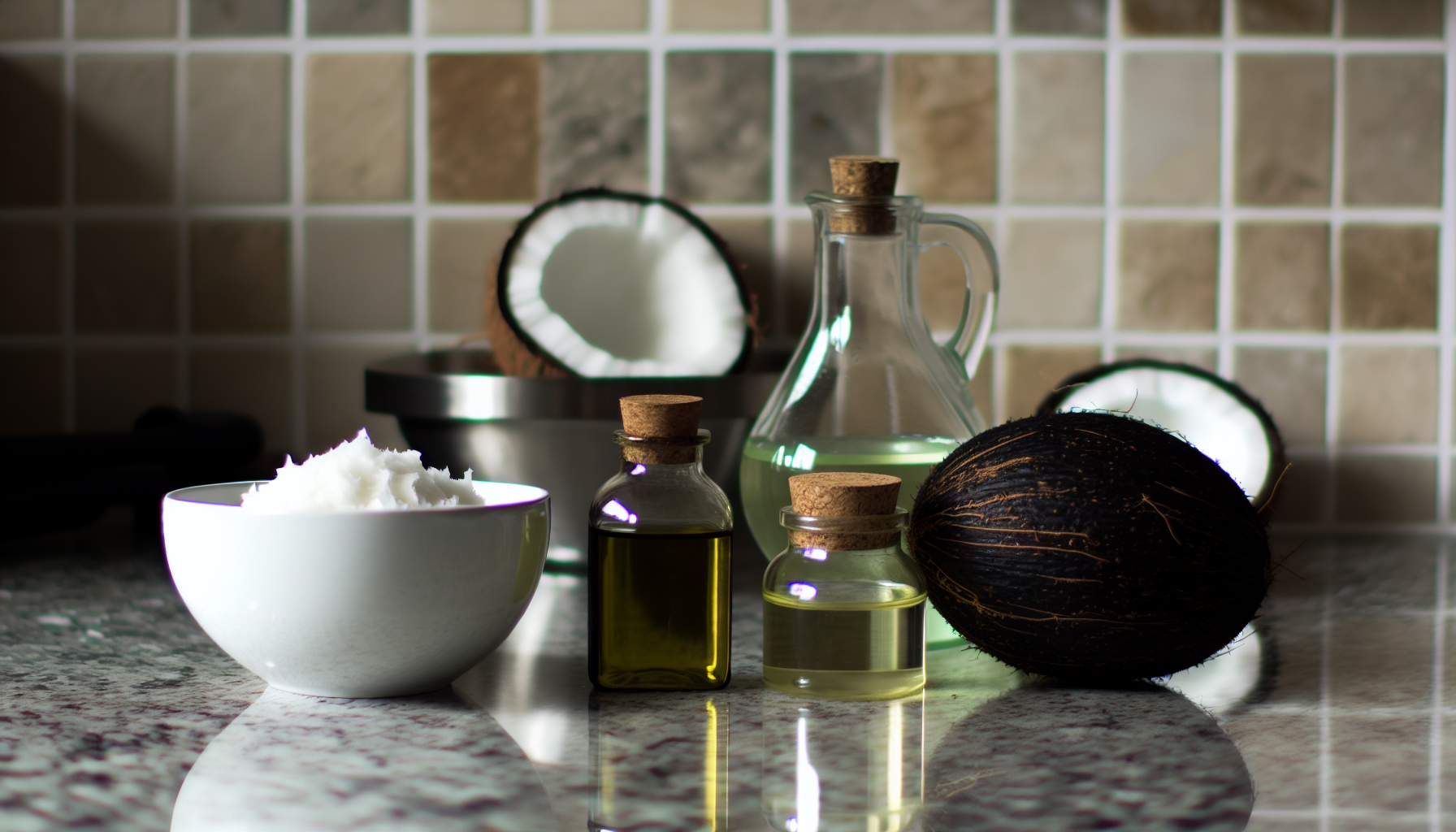
When formulating your own shampoo, you gain the benefit of being able to bypass harsh additives that are often used in commercial shampoos. These include sulfates which can deplete your hair’s natural moisture causing it to be dry and brittle. Parabens, a potential cause for scalp irritation or even hair loss. As well artificial fragrances containing strong chemicals damaging both the scalps and hairs.
By making homemade shampoo you get peace-of-mind from knowing there is no risk of exposure to these unwanted ingredients while creating something specifically tailored just for yourself. Having an individualized product made with quality components will guarantee far better results compared to using mass produced items found on store shelves.
Ultimately this advantage gives a great opportunity where all who wish can ensure they have optimal protection against potential health dangers by crafting their very own homemade shampoo—avoiding irritants like those previously mentioned but also offering top notch care towards preserving one’s tresses through its nourishing benefits!
Specialized Shampoos for Different Hair Needs
Everyone’s hair is unique, and it can sometimes require a bit of extra care. This is where homemade shampoos come into play- crafting your very own customized shampoo recipes suited to the needs of your individual hair type ensures that you get the nourishment necessary for healthy locks!
From dry scalp issues to oily strands or those with sensitive scalps, there are personalized concoctions designed specifically for each dilemma. With these tailor-made treatments available at home, pampering yourself has never been easier!
Soothing Dry Scalps with Moisture-Rich Recipes
For those suffering from dry scalps, a homemade shampoo using rich ingredients like coconut milk, avocado oil and shea butter can be created to give your scalp the hydration it needs. Coconut milk not only hydrates but provides nourishment while avocado oil deeply moisturizes and enriches your hair and scalp with essential nutrients. Shea butter offers soothing relief as well by reducing dryness while bringing much needed moisture into the equation. With these powerful elements combined you can formulate an effective recipe designed for tackling a parched head of hair!
Balancing Oily Hair with Clarifying Mixtures
Oily hair can be managed with homemade clarifying mixtures. Ingredients such as apple cider vinegar, green tea and baking soda will help remove excess oil from your hair and maintain its balance. Green tea has the ability to stimulate growth by unblocking clogged roots. To removing excessive grease build up. Mix these ingredients into a DIY shampoo for best results that promote healthy hair production while keeping it free of oils. This custom concoction should provide you with beautifully balanced locks all around!
Gentle Solutions for Sensitive Scalps
For those with a sensitive scalp, choosing the right product is key. Aloe vera and chamomile are excellent options as they both provide hydration and nourishment to reduce irritation on an uncomfortable scalp. Calendula can help soothe any existing itchiness or discomfort associated with your head’s delicate skin. All of these hypoallergenic ingredients combined will keep your sensitive scalp healthy and comfortable without risking aggravation due to harsh chemicals found in some products.
The Eco-Friendly Advantage of Homemade Shampoos
Using your own homemade shampoo has a range of benefits both for you and the environment. Firstly, it helps reduce plastic waste by cutting down on packaging. Replacing store-bought products with homemade alternatives prevents any potential hazardous chemicals from being released into our world. You can even make ‘shampoo bars’ that are particularly eco-friendly, offering great hair care as well as sustainability!
By switching to your own home crafted shampoo formula, there are nothing but positive outcomes for yourself and Mother Nature alike.
Tips for Transitioning to Homemade Hair Care
It may take some time and patience to adjust to natural hair care, but it’s worth the effort. After 7-8 washes with homemade shampoo using all-natural ingredients, you could experience issues such as breakage or dehydration before finally finding a routine that works for your needs. Stick with it, this process of experimentation is sure to pay off!
DIY Home Shampoo Recipe: A Step-by-Step Guide
Creating your own natural shampoo at home can be a rewarding experience. Not only does it allow you to control what goes into your hair care products, but it can also be a fun and creative process. Here's a simple guide to help you get started.
Ingredients:
-
1/2 cup of liquid Castile Soap
-
1/4 cup of canned Coconut Milk
-
1/4 cup of Honey
-
2 tablespoons of Jojoba Oil
-
20 drops of Essential Oils (like lavender, rosemary, or tea tree oil)
Steps:
-
Gather Your Ingredients: Make sure you have all the necessary ingredients available. You can find most of these at your local health food store or online.
-
Mix the Base: Start by pouring the liquid Castile soap into a bowl. This will serve as the base of your shampoo.
-
Add the Coconut Milk: Next, add the coconut milk to the bowl. Coconut milk is rich in fats and nutrients that will help to moisturize and nourish your hair.
-
Add the Honey: Now, add the honey to the mixture. Honey is a natural humectant, which means it helps to seal in moisture and keep your hair hydrated.
-
Add the Jojoba Oil: Pour in the jojoba oil. This oil closely resembles the natural oils produced by your scalp and hair, making it an excellent conditioner.
-
Add the Essential Oils: Finally, add your chosen essential oils to the mixture. These oils can provide a pleasant scent and additional hair care benefits. For example, lavender oil can help to soothe the scalp, while rosemary oil can stimulate hair growth.
-
Mix Well: Stir all the ingredients together until they are well combined. You should end up with a mixture that has a smooth, creamy consistency.
-
Transfer to a Bottle: Pour your homemade shampoo into a reusable shampoo bottle. You can use a funnel to make this process easier and less messy.
-
Use: To use your homemade shampoo, simply wet your hair, apply the shampoo, and rinse as usual. Remember, natural shampoos won't lather as much as commercial shampoos, but they're just as effective at cleaning your hair.
-
Store: Store your homemade shampoo in a cool, dark place. It should last for up to a month.
And there you have it! A simple, effective, and natural homemade shampoo that you can make at home. Enjoy the process and the knowledge that you're treating your hair with care.
Try ThinFix Hair Growth Routine
The ThinFix Hair Growth Routine is a scientifically designed program for those who are struggling with balding and seeking to encourage regrowth. This three-step regimen specifically targets hair loss, works to revive strands of the mane while simultaneously sustaining its strength and vigor. By making use of pure rosemary essential oil along with tea tree oils you can start seeing positive changes in just five months or receive your money back! Consider giving this solution an effort if aiming for thickening locks accompanied by more vigorous scalp health - there’s nothing like nourished tresses that have a sheen from within.
Summary
By making your own shampoo, you can make the most of healthy hair growth and prevent exposure to additives that may be damaging. With some experimentation, it is possible to create a bespoke blend of ingredients which caters to individual needs. Combining base components with natural oils and herbal extracts. This customised concoction has numerous benefits not only for one’s tresses, but also contributing positively to environmental sustainability as well!
What better way than now to get started on this journey? Committing yourself today will bring healthier looking locks whilst being kinder to our planet, so why hesitate any longer? Embarking on creating your own homemade shampoo promises great results for both you and nature alike!
Frequently Asked Questions
How do you make the best shampoo at home?
Make the best shampoo at home by combining 1/4 cup of water or coconut milk with 1/4 cup of castile soap, 1/2 teaspoon of jojoba oil (for dry hair) and 10-15 drops of essential oil.
For a natural shampoo, add 12 cups of water, 12 cups of castile soap, 12 tsp. of light vegetable or canola oil, and a few drops of essential oil for fragrance.
Lastly, combine 1/4 cup of water and 1/4 cup of liquid Castile Soap with 1 teaspoon of oil or baking soda (optional) and 4-5 drops of essential oil to make basic homemade shampoo.
What are the 3 main ingredients of shampoo?
Shampoo typically consists of a mixture of cationic surfactants, fatty acids and alcohols, perfumes plus sodium lauryl sulfate or its derivatives cocamidopropyl betaine as well as other preservatives. These ingredients form the basis for shampoos along with various additives used to provide additional benefits.
Can I use regular kitchen measuring cups for making homemade shampoo?
No specialized supplies are necessary for creating your own homemade shampoo, regular kitchen measuring cups can be used!
How long will it take for my hair to get used to homemade shampoo?
It should take a few weeks and around 7-8 washes for your hair to become accustomed to the natural ingredients in your homemade shampoo.
What is the shelf life of homemade shampoo?
Homemade shampoo can last for half a year or more, depending on the ingredients included.

